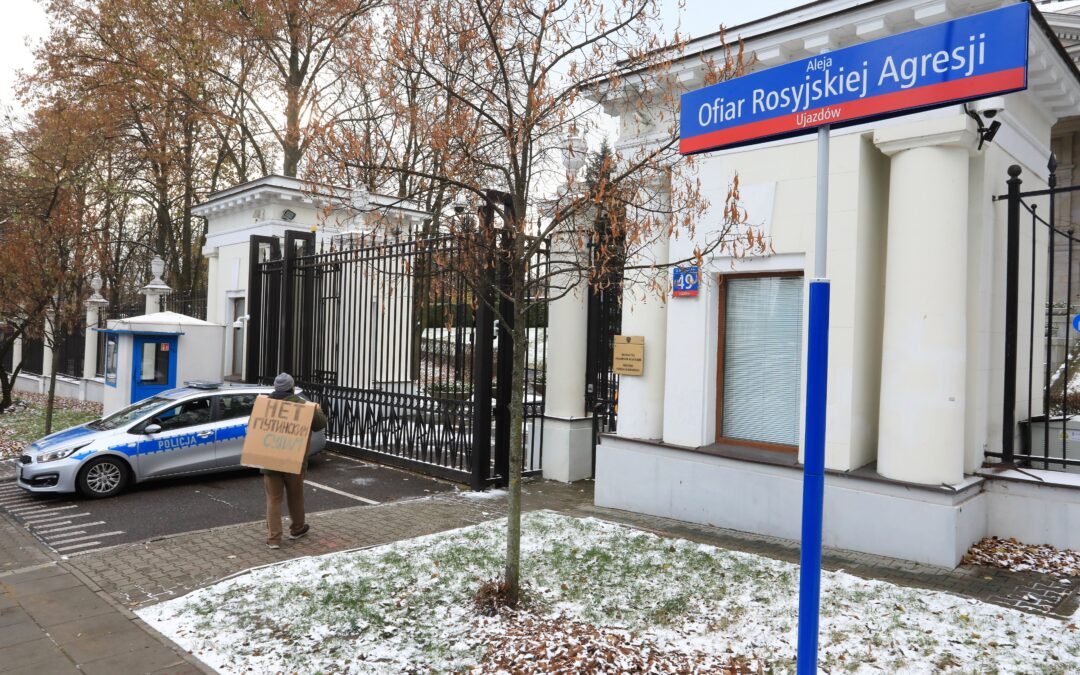Local authorities in Warsaw have named the lane that runs in front of Russia’s embassy “Victims of Russian Aggression Avenue”.
“We have a new avenue in Warsaw,” announced the municipal road authority, noting that the move had been made at the request of city councillors, who passed a resolution requesting it last month.
“The naming is intended to provoke, to force the Russian state to reflect and act,” reads the written justification for the resolution.
One of the signs bearing the new name of the avenue – which is a pedestrian and cycle route that runs along Belwederska Street – stands directly outside the embassy’s main entrance gate (pictured above).
🚶🚴 Ciąg pieszo-rowerowy wzdłuż ul. Belwederskiej od Bagateli do skrzyżowania ze Spacerową stał się Aleją Ofiar Rosyjskiej Agresji.
➡ Na tym odcinku znajdują się ambasada Rosji i jej dawny ośrodek kulturalny. Nazwa upamiętnia ofiary rosyjskiego napadu na Ukrainę. pic.twitter.com/ZbrT2oYDEc— ZDM Warszawa (@ZDM_Warszawa) November 18, 2022
An application to change the name was first made by city councillor Filip Frąckowiak from Law and Justice (PiS), the national ruling party, and was then supported by councillors from the national opposition, who make up a majority on Warsaw’s council. There were no votes against the resolution.
“We jointly condemned Russian aggression in the Warsaw council,” said Frąckowiak last month after the vote, quoted by the Polish Press Agency (PAP). “It is necessary to do everything possible to prevent Russia from continuing to blatantly disregard the rules of international coexistence.”
Warsaw councillors note that similar actions have already taken place in Prague and Vilnius, the capitals of the Czech Republic and Lithuania respectively. A number of other Polish cities have also renamed places in honour of Ukraine or in condemnation of Russia.
In April, the words “Слава Україні!”, meaning “Glory to Ukraine!”, were painted in Ukrainian national colours on the pavement outside the Russian embassy in Warsaw as part of an artistic project supported by city hall.
The same month, municipal authorities in the Polish capital seized a former Russian diplomatic compound, known by locals as “Spyville”, after Russia failed to vacate it despite a court order.
Last month, a group of NGOs staged a mock referendum outside the Russian embassy in which thousands of people “voted” for Poland to annex the site.
Main image credit: Jacek Marczewski / Agencja Wyborcza.pl

Daniel Tilles is editor-in-chief of Notes from Poland. He has written on Polish affairs for a wide range of publications, including Foreign Policy, POLITICO Europe, EUobserver and Dziennik Gazeta Prawna.




















